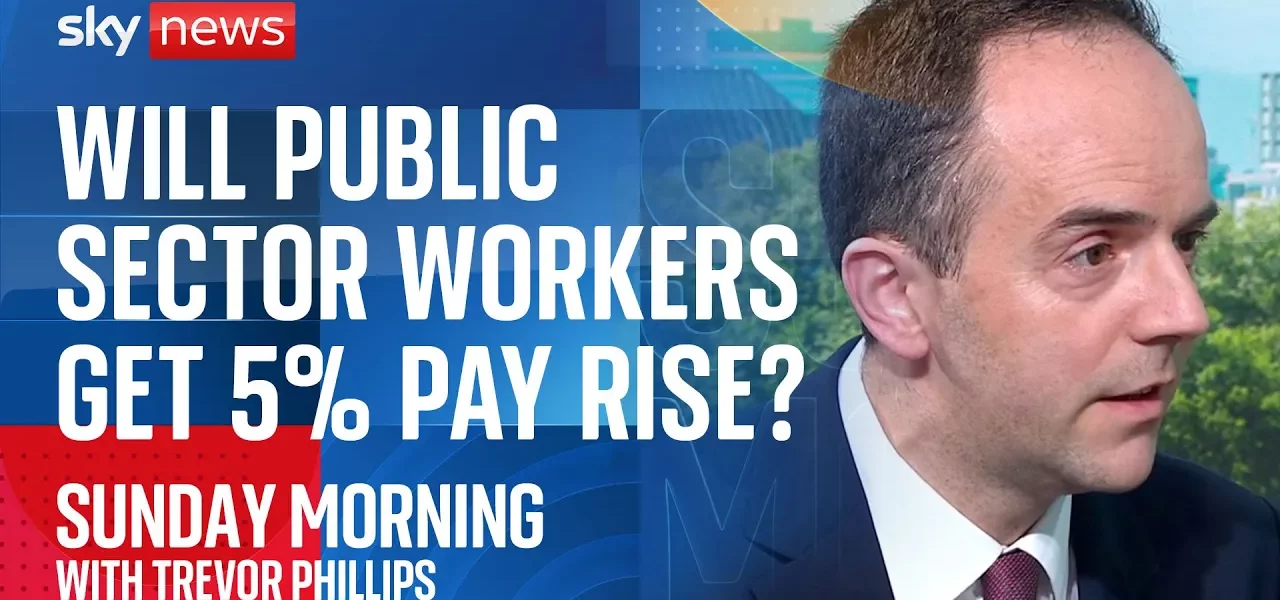The Current State of UK Public Finances and Pay Review Recommendations

This article delves into the significant challenges facing the UK government regarding public finances, the implications of recent pay review recommendations for public sector workers, and the broader economic strategies being proposed to navigate these turbulent times.
Introduction
The financial landscape of the United Kingdom has undergone a dramatic shift, particularly following the recent election cycle. As we step into a new governmental framework, the revelations regarding public finances have sparked widespread concern and debate. James Murray, the Secretary to the Treasury, has been vocal about the daunting task ahead, indicating that the country is facing its most significant fiscal challenges since the Second World War. This article aims to unpack these assertions, analyze the recommendations from pay review bodies, and explore the government’s fiscal strategies moving forward.
The Financial Inheritance from the Previous Government
Upon taking office, the new Chancellor of the Exchequer initiated a comprehensive review of the public finances, revealing a troubling financial inheritance from the last Conservative government. This assessment aims to provide a clear understanding of the current fiscal environment.
The Scale of the Financial Hole
The initial findings indicate that the financial gap is larger than anticipated. Key points include:
- Warnings during the election campaign about inheriting dire fiscal circumstances.
- Confirmation of these warnings upon review of the public finances.
- Plans to report the full extent of the financial challenges to Parliament.
Pay Review Recommendations
Recent news highlights that pay review bodies have recommended pay increases for teachers and NHS workers that exceed inflation. These recommendations present a significant financial challenge for the government.
Implications of Pay Increases
The suggested 5.5% pay increase for public sector workers translates to an estimated cost of £10 billion. This raises critical questions about the government’s ability to honor these commitments without breaching fiscal rules.
Government’s Stance on Pay Review Recommendations
James Murray emphasized a methodical approach to addressing these recommendations:
- Reviewing the pay bodies’ recommendations carefully.
- Analyzing the current state of public finances.
- Formulating a response to Parliament by the end of the month.
This structured response is crucial, especially given the potential consequences of failing to act, such as industrial action and challenges in recruitment and retention within critical public sectors.
Fiscal Rules and Economic Growth Strategies
With the fiscal rules firmly in place, the government must navigate these financial demands while maintaining economic stability.
Adherence to Fiscal Rules
The government has reiterated that its fiscal rules are non-negotiable. This strict adherence raises concerns about the feasibility of meeting pay demands while ensuring budgetary constraints are respected.
Strategies for Economic Growth
Recognizing the urgency of the situation, the Chancellor has also prioritized measures to stimulate economic growth. Key components include:
- Investing in growth initiatives to bolster the economy.
- Addressing the underlying issues that may hinder public service effectiveness.
- Ensuring all fiscal commitments are sustainable and fully funded.
Child Poverty and Social Welfare Commitments
As the government grapples with financial constraints, the issue of child poverty remains a pressing concern. Recent decisions have sparked debate over the prioritization of resources.
Comparative Resource Allocation
The decision to maintain the triple lock on pensions, which costs an estimated £13 billion, raises questions about the government’s priorities, especially when contrasted with child poverty alleviation strategies.
Proposed Strategies for Addressing Child Poverty
In response to criticisms regarding child poverty, the government plans to implement a comprehensive strategy, including:
- Establishing a task force dedicated to addressing child poverty.
- Ensuring that future commitments are fully funded and sustainable.
- Engaging in dialogues to reassess budget allocations to prioritize vulnerable populations.
Conclusion
In summary, the UK government faces a formidable challenge in managing public finances while addressing the critical needs of its citizens, particularly in the realms of public sector pay and child poverty. The commitment to a structured and thoughtful approach, as articulated by James Murray, underscores the importance of fiscal responsibility and economic growth strategies. As the Chancellor prepares to present her findings to Parliament, the nation awaits clarity on how these financial dilemmas will be addressed. For ongoing updates and insights into the government’s fiscal policies and their societal impacts, stay tuned to our articles.
“`




